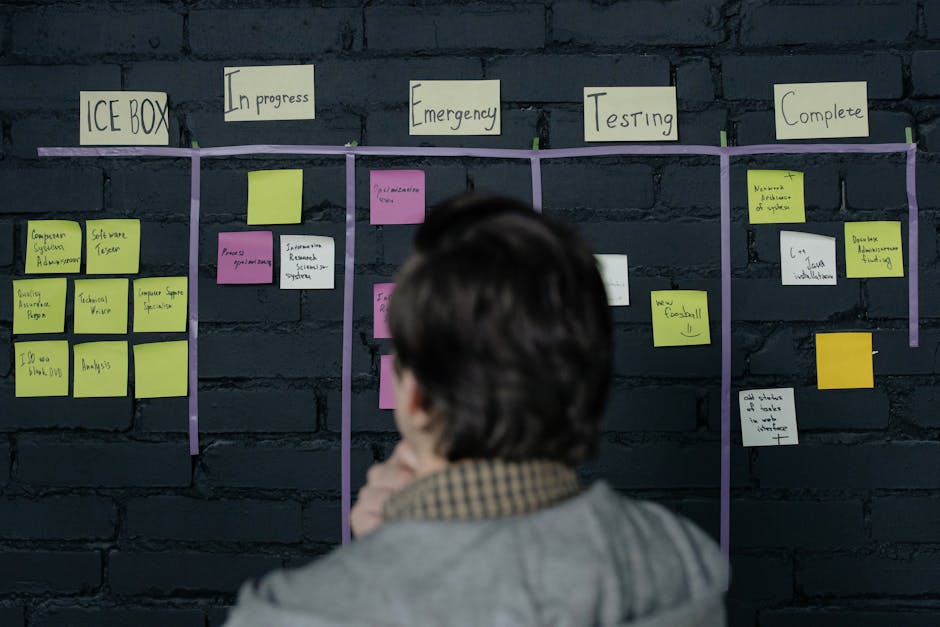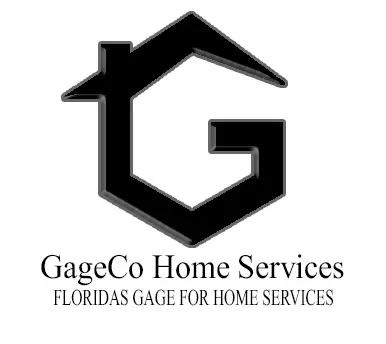What is property management software? It’s purpose-built software designed to help property managers with leases, maintenance, and finances. Unlike generic CRM systems or spreadsheets, it addresses the specific challenges of property management, offering features like maintenance tracking, reporting, communications management, and document storage.
Managing properties can be daunting. Property management software simplifies tasks, making life easier for property owners and managers. It helps automate manual processes, streamlines operations, and reduces inefficiencies.
This guide will dive deeper into what property management software is, its key features, and the benefits of implementing such a system. Let’s get started!

What is Property Management Software?
Property management software is purpose-built software designed to help property managers and landlords handle various tasks associated with managing properties. Unlike generic CRM systems or spreadsheets, it addresses the specific challenges of property management, offering features like maintenance tracking, reporting, communications management, and document storage.
Key Features of Property Management Software
Property management software offers a range of features that fall into three main categories: accounting, operations, and management and leasing.
Accounting
- Bank Sync: Automatically syncs with bank accounts to track income and expenses.
- Income and Expense Tracking: Keeps a detailed record of all financial transactions, making tax filing easier.
- Tax Filing: Simplifies the process of preparing and filing taxes by organizing financial data.
Operations
- Tenant Communication: Facilitates easy communication between property managers and tenants through emails, messages, or portals.
- Work Order Tracking: Manages maintenance requests and schedules repairs efficiently.
- Insurance Integrations: Ensures that all insurance documents are stored and easily accessible.
Management and Leasing
- Tenant Screening: Helps in selecting reliable tenants by conducting background checks.
- Rental Listing Syndication: Automatically posts rental listings on multiple platforms to attract potential tenants.
- Electronic Signatures: Allows for digital signing of lease agreements, speeding up the leasing process.
Who Uses Property Management Software?
Property management software is used by various stakeholders in the real estate industry:
- Landlords: Property owners who manage their portfolios in-house use this software to keep track of leases, handle maintenance requests, and manage finances.
- Property Managers: Both commercial and residential property managers use it to manage properties on behalf of owners, ensuring smooth operations and tenant satisfaction.
- Commercial Occupiers: Businesses that lease commercial spaces use property management software to track rent, manage maintenance, and oversee financials.

By automating and streamlining tasks, property management software helps users save time, reduce errors, and improve efficiency. This makes it an invaluable tool for anyone involved in property management.
Next, we’ll explore the benefits of using property management software in more detail.
Popular Features of Property Management Software
Accounting Features
Property management software excels in its accounting capabilities, simplifying financial management for landlords and property managers. Features like bank sync and reconciliation tools keep your accounts up-to-date automatically, saving time and reducing errors.
Income and expense tracking is crucial for monitoring all financial transactions, from rent payments to maintenance costs, essential for understanding your cash flow and profitability.
During tax season, property management software often includes integrated tax e-filing and reporting tools. These tools assist in preparing and filing your taxes accurately, ensuring compliance with tax regulations.
Operations Features
Day-to-day operations can be overwhelming, but property management software simplifies many tasks. Tenant communication features like integrated email and text messaging make it easy to stay in touch with tenants, ensuring timely responses to inquiries and requests.
Work order tracking is another valuable feature. It allows you to manage maintenance requests efficiently, ensuring issues are resolved quickly. Some software also offers insurance integrations, helping you keep track of insurance policies and claims.
Management and Leasing Features
Leasing is central to property management, and the right software can significantly ease this process. Tenant screening tools help you find reliable tenants by checking their credit scores, rental history, and other background information.
Rental listing syndication is another standout feature. It allows you to post vacancies across multiple rental websites with a single click, increasing your chances of filling properties quickly.
Finally, electronic signatures streamline the leasing process. Tenants can sign lease agreements online, saving time and reducing the need for in-person meetings.
By leveraging these features, property management software helps you manage your properties more efficiently, saving you time and reducing stress. Next, we’ll explore the benefits of using property management software in more detail.
Benefits of Property Management Software
Scalability
One of the biggest advantages of property management software is its scalability. As your portfolio grows, the software can easily handle additional properties without a hitch. This means you won’t have to switch systems or deal with the headaches of manual data entry. Instead, you can focus on expanding your business while the software keeps everything organized.
Automation
Property management involves many repetitive tasks, like sending rent reminders or processing maintenance requests. Property management software automates these tasks, freeing up your time for more strategic activities. For example, automated rent reminders ensure tenants pay on time, reducing the likelihood of missed payments and late fees.
Compliance
Staying compliant with regulations can be a complex task, but property management software simplifies it. The software keeps an audit trail of all activities, helping you meet regulatory requirements effortlessly. It also stores important documents like leases and insurance papers securely, ensuring you’re always prepared for audits.
Communication Tools
Effective communication is key to property management. The software often includes built-in communication tools that streamline interactions with tenants, clients, and suppliers. For instance, tenants can submit maintenance requests through the system, and you can respond directly, keeping everything documented in one place.
By leveraging these benefits, property management software helps you manage your properties more efficiently, saving you time and reducing stress. Next, we’ll explore how to choose the right property management software for your needs.
How to Choose Property Management Software
Choosing the right property management software can feel overwhelming. With so many options available, it’s important to focus on a few key factors: features, pricing, customer service, and scalability.
Evaluating Features
Start by identifying your current needs. Do you need software to handle accounting, tenant screening, or maintenance requests? Make a list of must-have features.
Also, think about your future needs. As your business grows, you don’t want to outgrow your software. Look for solutions that offer customization and can scale with your business. For example, if you plan to expand your property portfolio, ensure the software can handle additional units without a hitch.
Key features to consider:
- Accounting: Bank sync, income and expense tracking, tax filing
- Operations: Tenant communication, work order tracking, insurance integrations
- Management and Leasing: Tenant screening, rental listing syndication, electronic signatures
Pricing Considerations
Pricing varies widely among property management software. Some offer tiered pricing based on the number of units you manage, while others have a flat fee. Be cautious of hidden fees that can add up quickly.
Consider the following:
- Tiered Pricing: This can be cost-effective if you manage fewer properties but may become expensive as you scale.
- Free Trials: Many software providers offer free trials. Use these to test the features and see if they meet your needs.
- Hidden Fees: Look out for additional costs for add-ons or premium features. Always read the fine print.
Importance of Customer Service
Good customer service can make or break your experience with property management software. Check reviews to see what other users say about the support.
Key points to evaluate:
- Support Availability: Ensure that customer support is available when you need it. 24/7 support can be a lifesaver in emergencies.
- Response to Feedback: A company that listens to its users and makes improvements based on feedback is more likely to offer a better product.
By focusing on these factors, you can choose property management software that meets your needs now and in the future. Next, we’ll answer some frequently asked questions about property management software.
Frequently Asked Questions about Property Management Software
What is the meaning of property management system software?
Property management system software is designed to help property managers and landlords handle the various tasks involved in managing properties. This includes everything from collecting rent and handling maintenance requests to keeping track of leases and tenant communications. It’s a specialized tool that streamlines these tasks, making property management more efficient and less prone to errors.
What is property maintenance software?
Property maintenance software is a subset of property management software focused specifically on the upkeep and repair of properties. It helps property managers track maintenance requests, schedule repairs, and manage work orders. This software ensures that maintenance tasks are completed in a timely manner, keeping properties in good condition and tenants satisfied.
What software do apartment managers use?
Apartment managers often use comprehensive property management software that includes features for tenant screening, rent collection, and maintenance management. Popular choices include platforms that offer a range of functionalities tailored to both small and large portfolios. These tools help apartment managers keep everything organized, from tenant communications to financial reporting.
Next, let’s delve into the conclusion of our guide.
Conclusion
In summary, property management software is a powerful tool that can simplify the complexities of managing rental properties. It offers a range of features, from accounting and operations to management and leasing, all designed to streamline your daily tasks and improve efficiency. Whether you’re a landlord, property manager, or commercial occupier, this software can help you stay organized and maintain your properties effectively.
At GageCo Home Services, we understand the challenges property managers face. With over 30 years of experience in the Real Estate Service Industry, we offer a personalized approach to property management. Our solutions are tailored to meet your specific needs, ensuring that your properties are well-maintained and your tenants are satisfied.
We leverage advanced technology to provide efficient and effective property management services. From online rent payments and digital filing to cloud storage and contractor oversight, our tech-savvy methods streamline processes and enhance communication.
Choosing the right property management software can make a significant difference in your operations. Let us help you find the best solution for your needs. Contact us today to learn more about how we can assist you in managing your properties with ease and efficiency.


